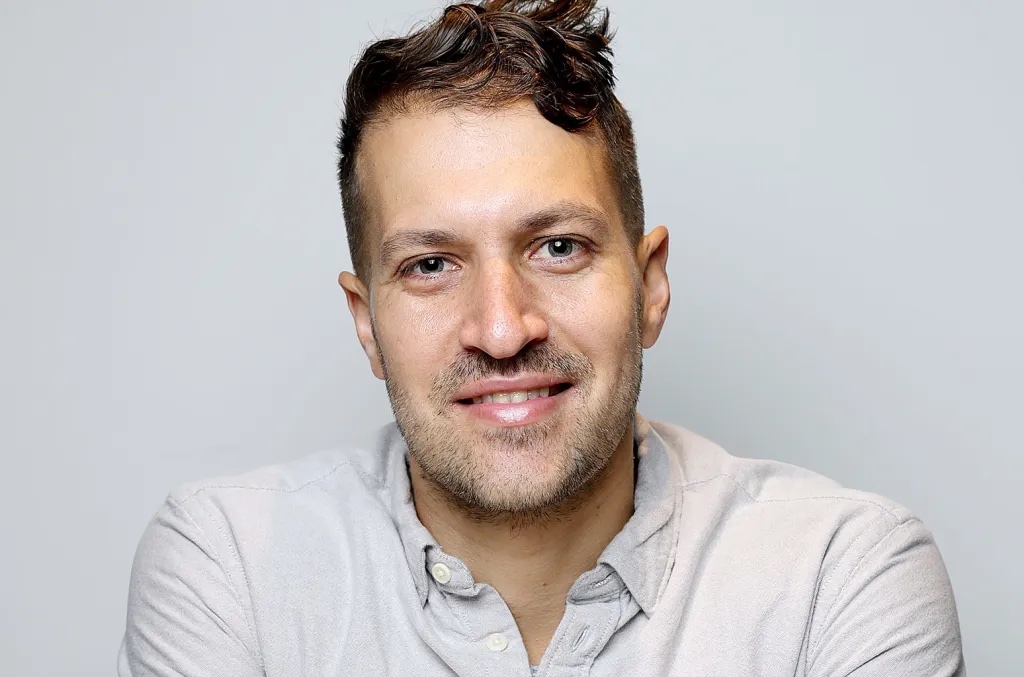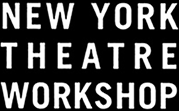

We’re gearing up for Saturday Church, which opens our 25/26 season. Adapted from the 2017 film, this exhilarating musical explores the intersections of faith and queerness. In advance of rehearsals, we sat down with filmmaker and co-book/additional lyric writer of the musical, Damon Cardasis to talk about the inspiration for the film and the process of bringing it to the stage.
What was the impetus to make the film Saturday Church? And how did you build community in the process of making it?
I am the gay son of a female Episcopal Priest so my relationship with religion, and Christianity in general, is somewhat unique. I’ve grown up with a mother, and Priest, who is extremely progressive. She’s marched in the gay pride parades, performed gay marriages, hung a gay pride flag outside of her Church and loved me unconditionally. I realize that, unfortunately, this is not the case for many within the LGBTQ+ community, especially those that have been raised in “Christian homes” and that many times the source of pain and ostracism stems from the Church itself; the exact place that they should be finding refuge and love in!
Unfortunately, many times, Christianity has been weaponized against the LGBTQ+ community and we have suffered because of it. It was therefore refreshing to find out, through my mother, that a Priest friend of hers had a program at St. Luke in The Fields on Christopher Street, that provided food and social services to at-risk members of our community. I was interested in finding out how a Church was trying to rectify the problems and heal the damage that had been caused by other Churches, all within the same religion. “Two sides of the same religious coin” so to speak.
I volunteered at the Saturday Church program for months, became friendly with some of the kids that attended it as well as the social worker Jenna Tine-Meyer, who led the program. I would help serve food, clean up and meet with the kids and hear the stories of what they’d been through, the abandonment and hardship they’d faced and how they’d found themselves at a Church on a Saturday night. Their stories of survival and perseverance were unbelievably inspiring and what started as curiosity about a program because of my mother began to transform into inspiration. You can never predict when or where inspiration comes from, but when it does, the best you can do is honor it.
As my idea formed more fully, the question was how to best depict this program. I tried discussing it with people in the film community but this was 2013 – 2015 and no one seemed to care that much. “It’s too small of a world” I was told many times, especially as for me, presenting the community authentically was an absolute must. .Back then, things had not progressed to where they are today, so the concept of not “casting a celebrity” was an idea that a lot of people were not into, but for me, there was no other option. Finding financing for a film that doesn’t star a celebrity made it even more difficult, so the scope and size of the film continued to shrink because I refused to stunt cast a “name”. It was also crucial to me that the community be involved in the crafting of the piece, so in addition to casting people who had actually attended the program, I worked with Lee Soulja (Executive Director of NYC Black Pride) and Michael Roberson (one of the leaders in the LGBT+ community and an adjunct professor at The New School), who have become friends and mentors of mine. Lee awarded me the “Community Ally Award” from NYC Black Pride which was an incredible honor.
While not a musical, the film incorporates both music (and music by Sia specifically) and dance in a theatrical way. What drew you to use these modes of storytelling?
For the film, I always was interested in having magical realism be a form of escapism. It’s something that I would do myself as a kid to escape; envision scenarios that were larger than life or fantastical. I realize now it’s part of what makes me a writer.
The musical aspect only really clicked in after spending months volunteering at the Saturday Church program. Adjacent to the cafeteria, where I met with the kids, was a gymnasium where the kids were allowed to hang out, dance or perform. It was this juxtaposition that spurred the musical element. I would go from having very heavy and intense conversations with some kids about trauma and abuse in the cafeteria to seeing them then walk a few steps into the gymnasium and transform into powerful beings as they danced and performed. I realized that performance was strength and a part of survival. It was cathartic and a release and it all snapped into place for me that the film “must be a musical”. Now how to make a low budget musical with a first time writer / director and a first time cast was another matter, but I knew that’s what it had to be.
You’ve been working on adapting the piece into a musical for a number of years now. What drove you to want to adapt the film for the stage?
I think we’re at 7 years now since I first started writing and working to turn this into a staged musical. To be honest, my “secret dream” from the start was that this could be a movie and then a piece of theater but I knew that was also slightly delusional. But delusion can be a great thing! I went to NYU’s Tisch School of the Arts for Theater, and did a semester at R.A.D.A in London, so theater has been in me from day one. I also trained as a dancer at Broadway Dance Center for years and studied voice, so the world of theater and live performance have been a part of my education since childhood. It was only in my twenties that the world of film and movies came about so even when I was writing it as a screenplay, I always thought about how wonderful it could be on a stage. Once a theater queen, always a theater queen! LOL.
Practically speaking, for the movie I was confined by the reality that we had almost nothing for a budget and 20 days to shoot it in (which is extremely short). Additionally, our lead boy was 16 so we could only have him on set for 9hrs total (again, a massive hurdle). This created a scenario where I had to be extremely thoughtful and somewhat confined in my approach to making the film. For the stage I knew, the sky was the limit. The wonderful thing about theater is imagination is such a massive aspect to it. The audience will go on the journey with you, if you “say it so”. You don’t have to literally show it with design, etc, so I really believed that if we could make this into a staged musical, we could break free of the physical constraints and budgetary constraints of making a small indie film.
When the movie came out, I would do Q&A’s at some of the screenings. At almost every Q&A, someone in the audience would ask me if I would ever turn this into a staged musical, to which I would respond “absolutely, that would be a dream.” It was at one of these Q&A’s that my now agent, Kevin Lin at CAA, approached me and said “would you really consider turning this into a staged musical?”, to which I responded “Absolutely! Yes!” He asked who would be the dream person to do the music and my response was “I know it’ll never happen, but I know Sia saw it because she tweeted about the film and congratulated me even though I’d never met her, so if we’re playing this game, then Sia.” His response was “Great, I know her producer, I’ll ask.” I thought it was never gonna happen and then two weeks later Kevin came back and said “I spoke to her producer. She’s in.” I was in shock. It’s insane to think that this all stemmed from a tweet! So thank you Kevin Lin for believing in me!
What’s been the most surprising thing about the process of adaptation? What are you most excited about as we head into rehearsals next month?
There’s so much that has been surprising and incredible about adapting the film into a stage musical. First and foremost, the incredible talent that is involved in this project is mindblowing. James and I didn’t know one another before we started writing together but in the process of passing draft after draft back and forth between us and ping ponging ideas, we have become good friends. Whitney is one of the most brilliant people I’ve ever met or worked with and her guidance and leadership is beyond what I could have imagined. We have all become close through this process and I love them! They are wonderful humans in addition to being brilliant artists! Then, you combine that with the unbelievable talent of Sia, one of the best songwriters in the world, and then Honey Dijon whose knowledge and artistry in music is incredible and Jason Michael Webb and Luke Solomon and Darrell Grand Moltrie, and Qween Jean and it’s beyond! Tim Levy and Cindy Tolan have done an incredible job of finding the tippity top of talent, getting us all together, and having it be a love fest. That is an incredible accomplishment in and of itself and then New York Theatre Workshop came on board and it took the dream even further. Developing this piece with them has been a true gift.
When it came to the actual adaptation of the work itself, it was about staying true to the essence of the piece but having fun with expanding it and letting it breathe and be what it needed to be for the stage. It was about looking at aspects of the film we wanted to advance, ideas we wanted to dig deeper in on and honestly, allowing it to flow and be what it needed to be, not stifle it. My favorite thing is to collaborate with other artists whose talent I am in awe of. We’re a mighty team, so having everyone contribute to making this piece what it is now has been incredible. I can’t wait for the world to see our phenomenal cast breathe life into these characters and bring this story to life!
Explore more
Categories: 2025/26 Season and Artist Interviews.

 My Cart
My Cart My Account
My Account Gift Certificates
Gift Certificates Find Us
Find Us




